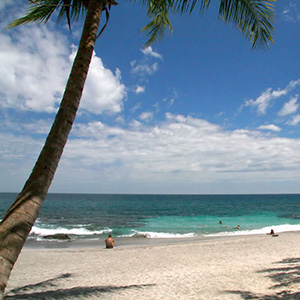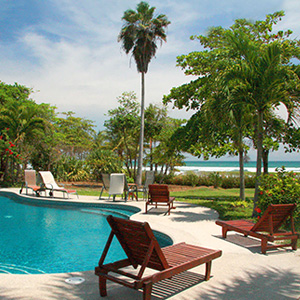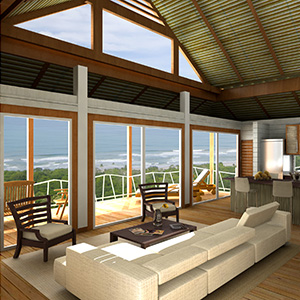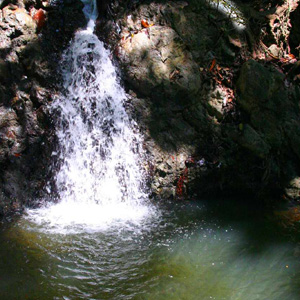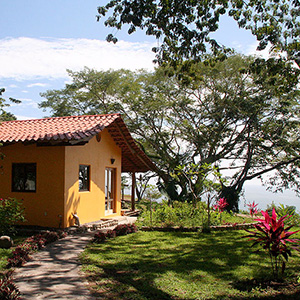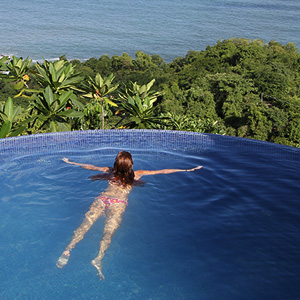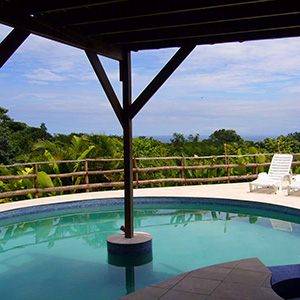Many people dream of owning a piece of beachfront land in paradise, but then get very confused once they start hearing about the concession process involved in such properties, and the various problems (and sometimes horror stories) from people who made made decisions regarding the purchase of this type of land (usually because of incompetent legal help.) I’ll do my best to explain this property type to you, but it can (and should) be further explained by a competent attorney. A concession can be a safe, secure means of having beachfront property in Costa Rica.
In Costa Rica there are several types of property. The most common is “titled” property which one would receive a deed to, as in any other country. Titled property makes up approximately 85% of all the property in Costa Rica. The remaining 15% is “concession” property. Without a doubt the concession properties are the most desirable of all because they are the beachfront. Transfers or leases on these properties are subject to specific legal rules.
In the Concession area, all beach properties are located in what is known as the Maritime Zone, a 200 meter strip starting from the average high tide line. The ZMT (Zona Maritima) is divided into a 50 meters strip closest to the shore know as public zone, and the remaining 150 meters that can be applied for concession in the corresponding Municipality.
Having a concession means the owner has a lease with the Costa Rica government for a specific period of time. The lease period is usually 20 years, and multiple lease terms can be acquired. So long as the concessionaire pays the annual dues on the concession and doesn’t violate the terms of the concession (by respecting green zones, building according to the rules of the concession, etc) the property is secure and the government must renew the concession for another 20 year period. Concession properties will have zoning restrictions outlined in Regulatory Plans called a “Plano Regulador” here in Costa Rica.
The main drawbacks of concession land are:
- Taxes are higher (about 2.5% of the value per year, but depending on your zoning.)
- Zoning Restrictions are more strict.
- Maximum height of construction is 7m and two stories.
- Because there’s no title, you can’t get title insurance.
- You usually can’t use concession land as collateral for a loan.
- You usually can’t get a construction loan or a mortgage on concession land.
- Until you actually get the concession you can’t build anything.
- All land laws are much more strictly enforced than with titled land.
- The land is more heavily regulated, which means more dealing with the Costa Rican bureaucracy. Developing this type of land is thus more difficult.
Despite the drawbacks, and even though it doesn’t have a title, it’s still is the most valuable type of land in Costa Rica because it’s either beachfront or very near the beach. Thousands of wealthy foreigners have assessed the risks with their attorneys and have chosen to purchase this type of land. This type of ownership is also common in Hawaii, where it’s called “Lease Hold” land.
According to an article we saw in the newspaper, 80% of the “concession” land in Costa Rica is now owned by foreigners, through the use of front companies, which is how you would probably purchase the land. You purchase the shares of a company which has the concession, or which has occupancy rights and thus is the only entity that’s legally entitled to apply for the concession. These foreigners tend to be wealthy investors, and they aren’t fools. They’ve assessed the risks with their lawyers, and have chosen to purchase this type of land. So we feel that generally speaking, real estate in the Maritime Zone is safe to purchase.
One thing that foreigners interested in purchasing this Concession land should be aware of is that according to Costa Rican law, a foreigner can only own 50% of a company that has a concession, unless he or she has been a Costa Rica resident for five years or more. So generally the lawyers have their methods and loopholes around this restriction. For example, the lawyer will find a Costa Rican to own the other 50% of the shares, but then create paperwork that doesn’t allow that Costa Rican to steal the property, and that “partner” can be removed from the company at any time. Another Costa Rican law states that any person can only be the owner of one concession property, so some foreigners have gotten into trouble when their lawyers used the same Costa Rican “partner” for multiple clients. Such concessions can be ruled as invalid. Having a good attorney who really protects you is very important.
One of the most frequently asked questions is whether the government can just take the land. “What if they just take our land” or “what if they change the laws.” First of all, most of this land is owned either by wealthy foreigners, or wealthy Costa Ricans, most of whom are lawyers and are in the government. They have little incentive to change the laws and take the land, since they’d be fighting a lot of wealthy and well-connected people in court. There are times, decades ago, when the government has taken back this type of land, after the taxes weren’t paid, or to make a national park. But that was decades ago, and nothing like this has happened in recent times.
